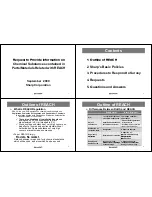
11
Increasing the value of the VOL (Volume) control makes the pitched
component of the sound louder with respect to the instrument’s other two
layers.
Air: The Air control sets the volume of the Air sample layer. This layer
contains the breath and “airflow” sounds that are an important part of the
sound of a real wind instrument. Increasing the value of the Air control makes
the Air layer louder with respect to the instrument’s other two layers.
Note: When using “Layered” or “Soft” Sound Sets it is recommended to only
use very low “Air” noise settings since these sets include soft played tones
which are naturally already noisy.
MIDI: The MIDI indicator lights up when any incoming MIDI Note-on
messages are received by SaxLab 2. Clicking and holding down a mouse
button while the cursor is over the MIDI indicator automatically plays a C3
note. The note is turned off when releasing the mouse button.
LinPlug SaxLab User Guide 2.0.3












































